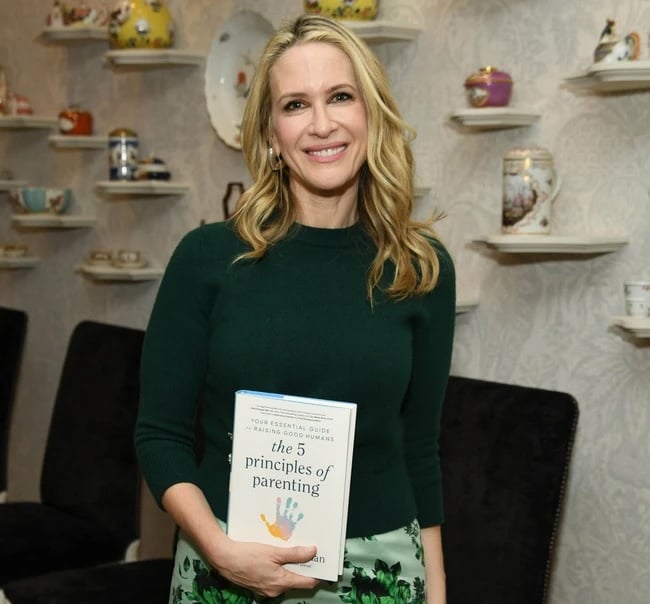Aliza Pressman, Ph.D., is a developmental psychologist and an assistant clinical professor in the Department of Pediatric Behavioral Health at the Icahn School of Medicine at Mount Sinai in Manhattan, USA. She is also the co-founder and executive director of the Mount Sinai Parenting Center.
For nearly two decades, Pressman has focused on researching child care and education. She frequently emphasizes to parents the importance of educating children from the heart and with belief.
According to her, it is important to teach children to believe in their own abilities and encourage them to put in their best effort to achieve their goals. Children who have self-confidence will constantly challenge themselves and strive harder. Instead of blaming external factors or lacking luck in talent, they will learn to control and focus on what they can change and improve.

Psychologist Aliza Pressman
Building confidence in children
According to Dr. Aliza Pressman’s research, children’s self-confidence is influenced by various factors:
Age- appropriate challenges
To develop a child’s self-confidence, it is necessary to provide appropriate challenges for each age group. Children can lose confidence if they are faced with tasks that are too difficult. Parents should encourage them by emphasizing effort: “You can do it if you try your best.”
Learning through observation
Children need the opportunity to observe and learn from others, especially those they can empathize with (peers, same gender, common interests). Seeing others succeed, children will feel that they are also capable. This creates confidence and motivation for children.

Children need the opportunity to observe and learn from others
Remembering past successes
When reminded of past achievements, children are less doubtful of their abilities. Optimistic and self-believing individuals tend to remember more successes than failures.
Create a peaceful environment
Feeling safe and peaceful helps children face challenges without anxiety or stress. Parents can teach children self-help skills to regain calmness, such as deep breathing exercises, to reduce stress and improve focus on the task at hand.
How to encourage self-confidence in children
To nurture self-confidence in children, parents can take the following steps:
Encourage new experiences
Encourage your child to approach and challenge themselves with new things they are not yet proficient in. Instead of expecting perfection, emphasize the learning process: “Every time you try, you will get better.”

Encourage your child to approach and challenge themselves
Provide positive and clear feedback
When a child makes a mistake, avoid criticism and instead explain and review the lesson in detail. For example, instead of saying “You’re wrong,” guide the child to recognize: “This apple is red, different from the green color of a lime.” This helps the child understand better and not fear making mistakes.
Specific and sincere praise
When a child does well, praise them specifically and sincerely. You can say, “You did great by persevering and finding the answer to the problem.” This not only encourages specific actions but also helps children understand the value of perseverance and effort.
These steps will help children realize that failure is part of the learning process and not a big issue. Self-belief and perseverance will lead to success. This is an important lesson that parents should teach their children.
Pressman emphasizes the importance of educating children “from the heart and with belief.” She encourages parents to teach children to believe in their abilities and put in their best efforts. By fostering self-confidence, children will be motivated to challenge themselves and achieve their goals, learning to focus on what they can change and improve.
According to Dr. Pressman’s research, providing age-appropriate challenges, offering opportunities for learning through observation, reminding children of their past successes, and creating a peaceful environment all contribute to building self-confidence. Parents should encourage children to take on new experiences, provide positive and clear feedback, and offer specific and sincere praise.
Children with self-confidence are more likely to challenge themselves and strive for harder goals. They learn to focus on what they can change and improve, rather than blaming external factors or feeling unlucky in talent. Self-confidence leads to a growth mindset, where children believe in their ability to learn and improve, fostering resilience and a positive outlook.
- Encourage your child to try new things and embrace challenges.
- Provide positive and constructive feedback, focusing on the learning process rather than perfection.
- Offer specific and sincere praise for a job well done, highlighting their perseverance and effort.
- Remind children of their past successes to boost their belief in their abilities.
- Create a peaceful and safe environment at home, teaching self-help skills to reduce anxiety and improve focus.
































